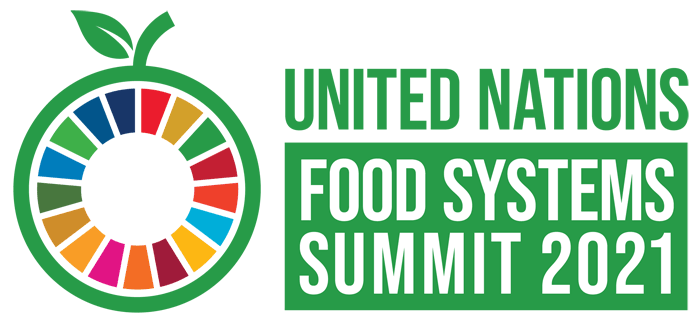Media
Press Release – 9 July 20201: Achieving healthier, sustainable and inclusive food systems requires input from all fields of science
Bonn/Rome, 9 July: Participants engaged in lively debates on the first day of the Science Days to discuss how to best accelerate the transformation to healthier, more sustainable, more equitable and more resilient food systems. Organized by the Scientific Group to the UN Food Systems Summit and facilitated and hosted by the UN Food and Agriculture Organization on 8-9 July, the Science Days are bringing together researchers, policy-makers, civil society and industry from a wide range of countries and disciplines to debate challenges and opportunities for science, technology and innovation to contribute to food systems transformation.
Download the full press release here.
Press Release – 30 June 20201: Global conference to identify science-based pathways towards sustainable food systems
Bonn/Rome, 30 June: Science, research and innovation are essential to accelerate the transformation to healthier, more sustainable, more equitable and more resilient food systems. What science and innovation are needed and how they can inform related policies will be discussed at the Science Days, a virtual conference organized by the Scientific Group to the UN Food Systems Summit and facilitated and hosted by the UN Food and Agriculture Organization on 8-9 July.
Download the full press release here.
Notes to Editors:
- The Science Days will take place on 8-9 July from 13:00-18:00 CEST.
- The strategic paper of the Scientific Group will be presented in the opening plenary on 8 July from 13:00-14:00 CEST.
- The virtual event is organised by the Scientific Group of the United Nations Food Systems Summit 2021 and facilitated and hosted by the Food and Agriculture Organization of the United Nations (FAO).
- In 17 different sessions speakers from all over the world will discuss science, technology and innovation for food systems transformation. The goal is to support the agenda setting process of the Food Systems Summit with scientific evidence and perspectives.
- Registration page for the Science Days: http://bit.ly/RegisterScienceDays
- The Science Days will be preceded by more than 40 Side-Events on 5-7 July which offer an opportunity for research and knowledge organizations to present their insights on the topic (sc-fss2021.org/events/sciencedays/side-events).
- The Scientific Group was established by the UN as an independent body of leading researchers from around the world to ensure the robustness and independence of the science that underpins the Food Systems Summit.
- The reports of the Scientific Group can be found at:
sc-fss2021.org/materials/scientific-group-reports-and-briefs - Over 40 FSS Briefs by Partners of Scientific Group are available here.
- The United Nations Food System Summit 2021 will be convened by UN Secretary-General António Guterres in September as part of the Decade of Action to achieve the Sustainable Development Goals (SDGs) by 2030. The Summit will launch bold new actions to deliver progress on all 17 SDGs, each of which relies to some degree on healthier, more sustainable and equitable food systems.
Contact
Media enquiries for the Scientific Group can be sent to info@sc-fss2021.org.
Information about all moderators and panellists at the Science Days can be found at sc-fss2021.org/events/sciencedays/panellists
Key Messages:
- Global food systems are failing to end hunger or provide sufficient foods for healthy diets which compromises the achievement of the SDGs and the 2030 Agenda.
- Poverty and inequalities between and within countries are widespread and getting entrenched. Ending them remains essential for the achievement of the SDGs.
- Investments in science- and technology-based innovations must be accompanied by institutional and policy innovations to include poor and marginalized populations with special attention to indigenous peoples.
- Agriculture must be part of the solutions for tackling climate change, and must not only be seen as part of the problems.
- Food systems need to be made more resilient to health shocks, pandemics and other crises, just as more attention is being paid on how to make food systems more resilient to weather shocks and the climate crisis.
- Equity and the role of women and the youth is very important for productive, healthy and sustainable food systems and needs to be strengthened.
- Innovations and technologies need to be adapted to local conditions while being accessible and affordable to farmers, especially smallholders.
- Greater emphasis must be given to the development of green technologies that deploy indigenous perennial species to boost nature-positive production.
- Science-based innovations for sustainable “blue foods” that protect and harness oceans and coastal areas can play a growing role in ending malnutrition and in building healthy, nature-positive and resilient food systems.
- Facilitating peace, security, sound governance and conflict resolution is crucial to enable food systems transformation.
- The science and policy interface at local, national, and international levels needs to be strengthened with a strong international and independent voice for science-informed and evidence-based food systems policies.
- To end hunger and achieve SDG2 additional investments of US$ 39 to 50 billion per annum are necessary.
- Governments need to allocate at least 1% of their agricultural GDP to food systems science and innovation.
Further information
» Side-Events
» July 05, 2021
» July 06, 2021
» July 07, 2021
Contact
sciencedays[at]sc-fss2021.org

#ScienceDays #FoodSystems
